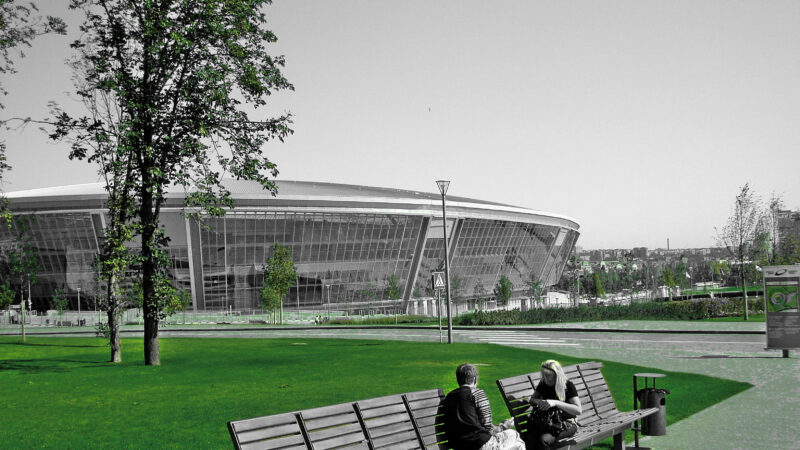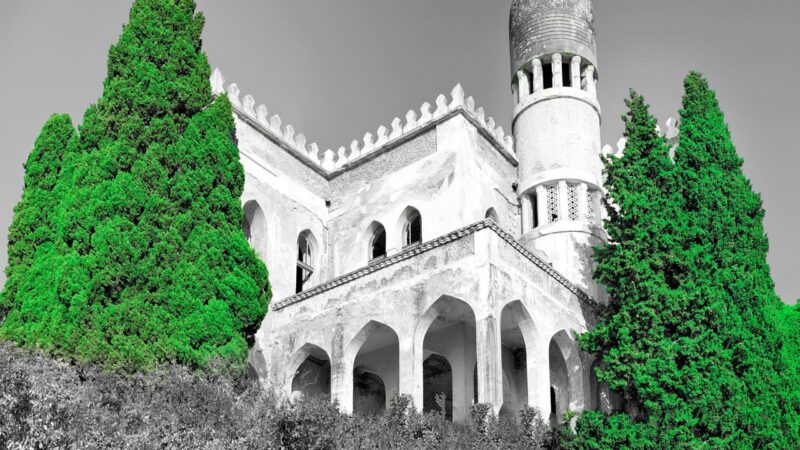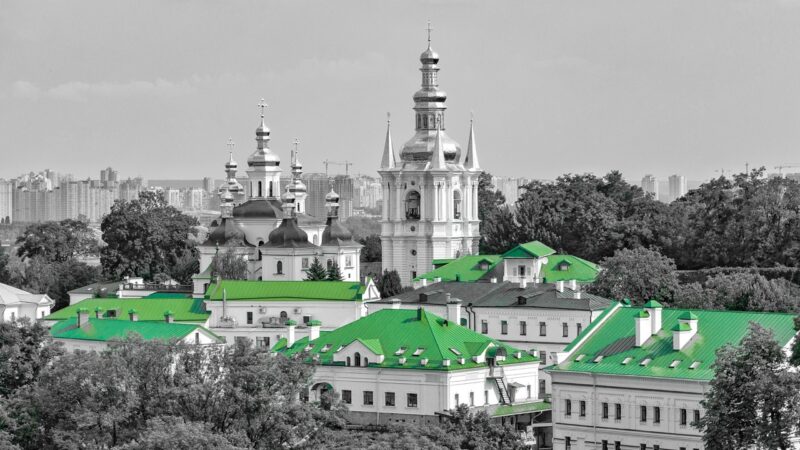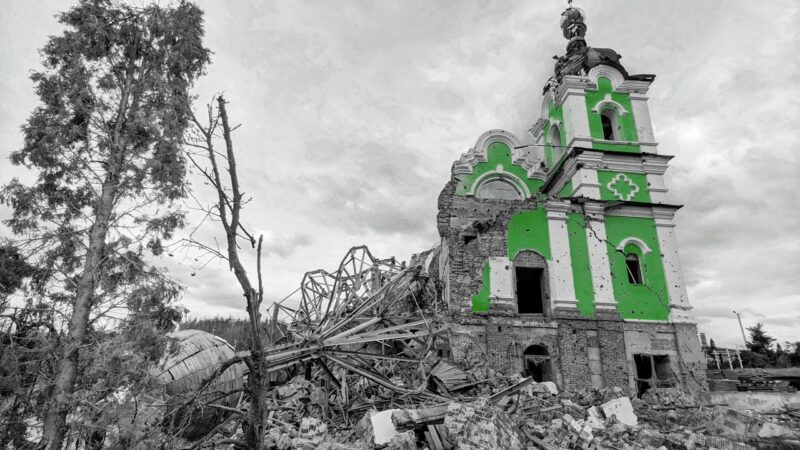Living on the Margins: The Case of the Bessarabian Bulgarians in Ukraine
In the aftermath of the Euromaidan events and further Russian military operations in Crimea and southeast Ukraine, the broader public in Bulgaria has been polarized into a dichotomy of opposing opinions along pro- or anti-Russia lines. This polarization has left little room to debate a number of different minority issues in Ukraine, whose wealth of diverse communities have been involved in since the demise of the Soviet Union in 1991. After the 2014 illegal annexation of Crimea by the Russian Federation and ongoing bitter confrontation along the Lines of Contact of the self-nominated Donetsk and Luhansk People Republics, the rise of nativist discourse and right-wing mobs have drawn Ukrainian and international attention to the need to protect minority groups across the country.
Today’s state of affairs with regard to minority groups in Ukraine has been negatively reported by Minority Rights Group International, a London-based think-tank that recently ranked Ukraine eighteenth in its “2019 Peoples under Threat Index” [1]. Along with the constantly deteriorating conditions of indigenous Tatars in Crimea, the report largely criticized the failure of Ukrainian authorities to safeguard basic human rights of other communities, such as Roma [2].
Ukraine has also been home to many smaller, yet culturally important communities—of Greeks, Jews, Hungarians, Romanians, and Bulgarians—that have recently experienced profound uncertainty due to the rise of ethno-nationalist discourse across Ukraine and military conflict with Russia.
Identity on the margins
Among other regions neighbouring different Central and Eastern European countries, Ukraine’s Odesa oblast represents what is likely one of the most diverse areas of the entire country. Its ethnic makeup is significantly accounted for by the historical presence of Bulgarian and Romanian minorities, together with other, smaller, Jewish, and Greek communities.
In particular, ethnic Bulgarians are the sixth-largest minority group in the country, after Ukrainians, Russians, Belarusans, Moldavians, and Crimean Tatars. According to the 2001 census, 204,600 people across the country define themselves as Bulgarians [3], while in areas such as Bessarabia (also known as Budjiak), Bulgarians represent 21% of the total local population. They compose a substantial transnational community situated between the territories of contemporary Moldova and Ukraine.
The history of the Bessarabian Bulgarians goes back in time to the Russo-Turkish War (1878–79), when 250,000 ethnic Bulgarians joined the departure of Russian troops from the region back to the Russian Empire [4]. Settling in the region of Bessarabia and Crimea, those Bulgarian émigrés constituted an ethnically distinct community in Ukraine.
Being poorly governed and suffering from socio-political turbulence before the start of WWII, Bessarabia became easy pray for Hitler’s expansionist policy in Eastern Europe. Then, in 1941 the Soviet Army reassigned Northern Bucovina to Romania and divided Bessarabia between the Moldavian SSR and the Ukrainian SSR. Although the latter received only one-quarter of the historical area of Bessarabia—the southern part—it was a most strategic area, serving as a gateway to the port of Odesa and the Black Sea [5]. Throughout the Stalinist terror, ethnic Bulgarians found themselves in two different Soviet Republics, suffering land dispossession and political persecution, and the disadvantages of Soviet citizenship and collective farming persisted until the collapse of the Moscow-controlled regime in 1991. Throughout this period, many were deported to the Far East for political reasons, related to their alleged affiliation and hidden connections with far-right movements in Bulgaria that aimed to unite the country with Southern Ukraine [6].
Since 1991, Ukraine has recognized its ethnic Bulgarians and many other small communities alike, granting them status as national and ethnic minorities on its territory. Nevertheless, the first period after the demise of the Soviet administration meant a difficult transition from a centrally planned to a market economy [7], causing ethnic Bulgarians and many others to lose the sources of their income and compelling them to design strategies to cope with the new situation.
Currently, ethnic Bulgarians living in Ukraine face no direct threat against their communities or local administrations. As reported by minority representatives, after the Euromaidan Bulgarians living in rural areas of Odesa oblast feared some sort of mobilization for potential military action. In the ethnic Bulgarian villages of Dmytrivka and Kulevcha, many protested against an initiative to draft young men to serve in the national army in Southeast Ukraine [8]. Although Bessarabian Bulgarians self-identify as such due to their heritage, attempting to trace their cultural identity back to a pristine form of Bulgarian-ness would lead to a blurred picture. With a good command of an old-fashioned form of the Bulgarian language, the majority evinces feelings of belonging to both their community in Ukraine and Bulgarian society—as well as, to some extent, to the Russian culture. In 2015 they contested Kyiv’s attitude toward Russia and Ukrainian ethno-nationalism, yet they have never shown actions of disloyalty or self-isolationist attitudes toward Ukrainian authorities and other communities within Odesa oblast.
On the one hand, the preservation of Bulgarian identity and culture has facilitated ethnic Bulgarians to better claim their minority status in Ukraine, and often they are able to obtain Bulgarian citizenship. On the other hand, given their politically insecure position they avoid being targeted by far-right activists.
A Bulgarian perspective
The Bessarabian Bulgarians played a significant role in the development of late modern Bulgarian culture (1840–60). Aleksandar Teodorov-Balan, for example, a linguist and historian originally from Ukrainian Bessarabia, was the first rector of the Sofia University of “St. Kliment Ohridski.” Despite the fact that geography became the primary source for identifying a “map” of Bulgaria by summarizing lands where Bulgarian language was spoken, the rational pragmatism through which Bulgarian identity was constructed left little room for the distant region of Bessarabia, not geographically near to those Bulgarian territories lost after the Treaty of San Stefano (1878).
Only in the 1990s, Bulgaria began to be politically engaged in protecting special rights of its diaspora communities, through financial support aimed at coordinating and supporting cultural and educational activities. Support for the return to Bulgaria was provided through legislation aimed at coordinating Bulgarian communities abroad and different activities of Bulgarian minority institutions. In particular, the State Agency for Bulgarians Abroad (SABA) became an instrument of the Council of Ministers in 2000, which focused on preserving and promoting the Bulgarian cultural heritage among Bulgarians abroad.
The State Agency for Bulgarians Abroad suggested implementing settlement programs for Bessarabian Bulgarians and that measures be taken for further economic and social integration aimed at alleviating the demographic crisis and labour shortage in certain sectors of the domestic economy. Regrettably, the results have been minimal so far. In general, the Bessarabian Bulgarians who arrive in Bulgaria are motivated either by personal circumstances or pragmatic reasons. Moreover, their home country brethren do not recognize them as members of contemporary Bulgarian society, only as Bulgarians from Ukraine. For the Bessarabians this lack of acceptance has led to the disappearance of any nostalgic feeling for and idealization of Bulgaria as motherland, as had been transmitted from older generations. In addition, the ability of all Ukrainian citizens to travel and visit Bulgaria has resulted in the virtual disappearance of other emotional elements that might have still remained among the Bessarabian Bulgarians.
All of these have led the Bessarabian Bulgarians toward a more marginal position both in Ukraine and in Bulgaria. The opportunity to leave Bessarabia means nothing more than an opportunistic move to gain migration opportunities in other European countries—after receiving Bulgarian citizenship, applying to Bulgarian universities, and leaving the rural Ukrainian areas they come from, where higher education is not accessible and work opportunities are mainly related to agriculture or the service sector [9].
Current Bulgaria-Ukraine interstate relations: The same (diplomatic) language
The latest dispute over the Ukrainian law “On facilitating the functioning of the Ukrainian language as the state language,” unleashed criticism on the part of Bulgarian, Hungarian, Greek, and Romanian diplomats due to alleged violation of minority rights in that country. While Hungary reacted against the Education Act by affirming that it would even veto Ukraine’s accession to the NATO as retaliation to the significantly restrictive law denying the rights of national minorities to receive education in their native language, Bulgaria took a much calmer diplomatic position.
The Ukrainian Education Law, which was initially signed by President Petro Poroshenko prior to his defeat by Volodymyr Zelensky, guarantees the right of national minorities to study for the entire period of primary school (first four years of school) in their minority language. At the secondary level (grades 5 to 12) the law ensured the right of national minorities to learn their minority languages as a separate subject, starting to gradually introduce more subjects taught in the state language and achieving the proportion of 60% of subjects taught in Ukrainian and 40% in minority languages by the 11th grade.
Although the same law stipulates that, along with learning the state language, representatives of national minorities should have conditions for learning their native language and studying in their native language, political speculations have been raised. With exceptions for the indigenous Crimean Tatars, who can keep their bilingual education through to the end of high school, Ukraine allows schools to provide primary education in those minority languages recognised in the European Union—thus covering Bulgarian, among others, spoken in Bessarabia. As a matter of fact, Russian is excluded despite being by far the second-most used language in the country.
In this regard, the traditionally good relations between Bulgaria and Ukraine have rested on a solid foundation and maintained deep roots despite the controversies on the Article 7 of the new Education Law. In addition, both countries separately confirmed the importance of studying state languages in both countries as a key factor for achieving integration and social consensus, opening the opportunity to work together.
Despite the fact that Bulgaria has never had language policies for its own national minority groups, the Bulgarian Ministry of Education and Science stipulated a document with the Ukrainian Ministry of Education and Science for working on a new Protocol throughout the transition period extended to 2023 for the introduction of language provisions in its education law.
Conclusion
In today’s Ukraine, minority issues might potentially erupt and impinge on national security in light of the tense interstate relations with Moscow. Pursuant to a resolution of the Cabinet of Ministers of Ukraine dated 18 July 2018, a population census will be conducted in Ukraine throughout 2020—despite it being a time of uncertainty and political instability due to the ongoing military confrontation with Russian separatists and Zelensky’s presidency. However, it seems that in the Odesa oblast in general, and Ukrainian Bessarabia in particular, conflict situations and confrontation are less likely because of the locals’ strong sense of regional identity and rural everyday life. Perhaps, Ukraine’s process of decentralization might revitalise some marginal yet politically provocative and locally present episodes of so-called “Bessarabian separatism”; however, ethnic Bulgarians usually play a rather passive role in local politics. This does not fully guarantee the region itself a future free of turbulence, yet it does not undermine local responses to mitigate such potential new phases of crisis on the margins of a new Ukraine still to come.
Francesco Trupia
PhD Candidate at Sofia University “St. Kliment Ohridski”
Acknowledgement: This article has been possible thanks to support and consultations from Margarita Spasova, President of the Bulgaria-based Forum for Global Change.
References
[1] 2019s Peoples under Threat Index, available at https://peoplesunderthreat.org/countries/ukraine/ [2] HRC36 – Ukraine: MRG raises the situation of Roma and Crimean Tatars at the Human Rights Council, Advocacy Statement | 27 SEP 2017, available at https://minorityrights.org/advocacy-statements/mrg-gives-statement-un-human-rights-council-ukraine/ [3] About number and composition population of UKRAINE by data All-Ukrainian population census 2001 data, available at http://2001.ukrcensus.gov.ua/eng/results/general/nationality/ [4] See more, R. J. Crampton, A Concise History of Bulgaria (Cambridge Concise Histories) 2nd edition, Cambridge University Press, 2016. [5] See more, De-Stalinising Eastern Europe. The rehabilitation of Stalin’s Victims after 1953, ed. by K. McDermott and M. Stibbe, Palgrave Macmillan, 2015. [6] See more, S. Raichevsky, The Genocide Against Bulgarians in the 20th Century, published by the National Museum of Bulgarian Books and Polygraphs, Sofia, 2005, pp.90-96. [7] See more Y. Yancheva, The Bulgarian Diaspora in Moldova and Ukraine in the Context of Agricultural De-Collectivization Social and Economic Consequences for Everyday Life, in Ethnologia Balkanica 18 (2015), p.173-187. [8] Bessarabia’s Hopes and Fears on Ukraine’s Edge, by Thomas De Waal and Balázs Jarábik, Canergie Europe, May 24, 2018, available at [9] For further research on, see more A. Ganchev (2006) Bessarabian Bulgarians: Studying in Bulgaria, searching for an identity. The Anthropology of East Europe Review, 24 (1), 38-43; Ganchev A. (2008a) Bulgarians from Ukraine – students in Bulgaria. Migration or emigration. Bulgarian Folklore, 1, 86-98; Ganchev, A. (2008b). Labour migrations of Bulgarians from Ukraine to the European Union today and tomorrow: Factors and forecasts. Migracijske i Etničke Teme, 27 (2), 227-248;




